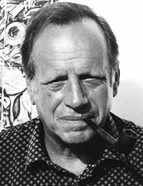

This volume includes the entry (taken from Motim literário – Ensaio, crítica, polémica [Literary Mutiny – Essay, Criticism, Polemic] (1962) “Lirismo” [Lyricism], dated 1949 – when David was twenty-two years old – in which he defines this literary mode in terms that follow Paul Valéry: “Lyricism – the development of an exclamation: the attitude of someone who is astonished, admires or notices – before or in – any circumstance, and immediately tends to isolate it, to make it independent and memorable.” (p.79), in accordance with what he designates as “process” (p.81). These are methodological principles that he will always follow: empirical and immediate knowledge must be complemented by study, erecting the stone monument that Horace advocated for the sense of memory and historicity that literature and the arts imply, and to which criticism gives enlightened substance. He will do so, in particular, as he further argues, considering that “the great eras of lyricism”, in a historicist framework of classical origin, “are those in which balance, coherence or proportion is achieved between motifs and technique, between themes and forms”, achieving “harmonious correspondence” between the “elements” (pp.81-82; italics in the text). In 1949, Mourão-Ferreira set out his rigorous conception of lyricism in these terms, evident both in his critical practice as a whole and in his multimodal literary work. In everything he does, he follows these Apollonian principles, remembering tradition but inventing his own voice from it, honed over the years but always close to these roots. His broad and up-to-date knowledge of other literatures and theoretical matrices of his thinking, evident since the 1940s, is perfectly articulated, for example, in Távola Redonda , a series of poetry sheets he edited with António Manuel Couto Viana and Luís de Macedo (1950-1954), both in theoretical and critical texts and in poetic collaboration. It should be remembered that this publication gave rise to established names and others who were just starting out, including Alberto de Lacerda (editor of the journal), Sebastião da Gama, Fernanda Botelho and others.
This work is financed by national funds through FCT - Foundation for Science and Technology, I.P, in the scope of the projects UIDB/04311/2020 and UIDP/04311/2020.
